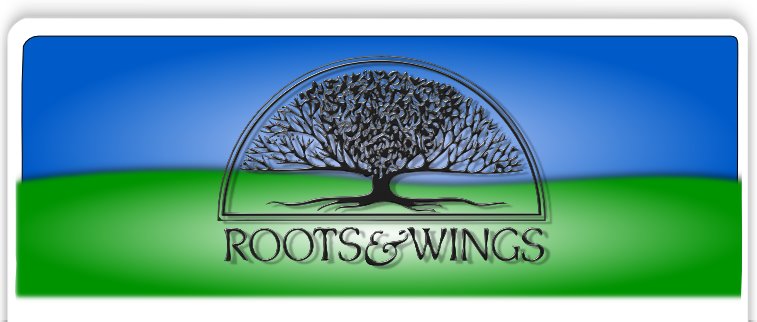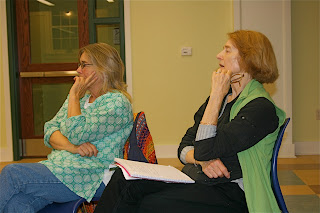Hosted by the HealthAlliance of the Hudson Valley and co-sponsored by Breast Cancer Options
A panel discussion at a local hospital inspired a lively discussion on living a full life after a breast cancer diagnosis. The goal of the event was to help people connect to the emotional, social and spiritual support they need and find meaning and purpose in their lives.
Puja Thomson, author of After Shock: From Cancer Diagnosis
to Healing and My Hope & Focus Organizer, facilitated the event,
Perspectives on Breast Cancer Survivorship, at the Benedictine Hospital on Oct.
22. Five panel members represented organizations that work together to offer
services and resources in the Hudson Valley to benefit women and families
affected by breast cancer. The panel
included, Barbara Sarah, founder of the Oncology Support Program at Benedictine
Hospital, Mary Martin, a breast health navigator of the Fern Feldman Anolick
Center for Breast Health at the Benedictine Hospital, Wendy Stickley-Ocker of
the American Cancer Society and Hope Nemiroff of Breast Cancer Options. The
representatives presented their perspectives and offered resources for audience
members to receive the support they need. The audience was encouraged to help
others find the support they need and positively influence the future of breast
cancer.
Methods and perspectives on breast cancer vary, there are even multiple
definitions of cancer survivorship, Thomson explained. Some believe that
survivorship occurs at the time of a cancer diagnosis, others believe
survivorship is won after treatment ends, while some believe that survivorship
means living with cancer. “The number of people living with cancer will increase
over the next decade because the quality of survival is improving,” Wendy Stickley-Ocker of the American Cancer Society informed the audience. The
American Cancer Society aims to help your survival plan, and relieve the
negative emotional effects of getting a diagnosis.
“You can still have a full and rich life even if you are diagnosed with cancer,” Barbara Sarah said. Sarah’s Oncology Support Program promotes a philosophy of living well. Her work is based on Buddhist philosophy, but teaches people of various faiths to live life with intention and to cope with worry and fear. “Now is the most important word, live everyday fully,” Sarah told the audience. The Oncology Support Program offers more than your ordinary “sit and talk” support groups. Their programs include classes on cooking, memoir writing, art and music therapy, improv groups and much more. Their Nurturing Neighborhood Network connects cancer survivors to other survivors trained by the Oncology Support Program to provide peer support. Through the Oncology Support Program people can turn their worries into action and find solace in their peers.
Mary Martin is a breast health navigator of the Fern Feldman Anolick Center for Breast Health who works to help people receive cancer treatment, especially the uninsured or underinsured. The Fern Feldman Anolick Center for Breast Health at the Benedictine Hospital provides comprehensive breast imaging like diagnostic screening and digital mammography and ultrasounds. Martin described a new law that helps educate patients in N.Y. The law requires health care facilities to inform patients who have dense breast tissues that their cancer could be concealed on a mammogram. People with denser breast tissue have more glandular tissue and less fatty tissue. “Additional imaging, such as ultrasounds or MRIs, may be necessary,” Martin explained. Women whose breast cancer was not indicated on mammograms because of their dense breast tissue lobbied for this law. The Breast Density Inform bill will take effect Jan. 1st 2013.
The panel stressed the importance of using information from trustworthy sources to create appropriate treatment plans. “People don’t just want support groups, they want information to make their own decisions,” Hope Nemiroff of Breast Cancer Options explained. Breast Cancer Options educates patients about effective treatment options and promotes public awareness regarding cancer risk education. Breast Cancer Options offers free acupuncture for people undergoing cancer treatment and companion advocate programs to support patients during doctor’s appointments in various counties in New York.
“You can still have a full and rich life even if you are diagnosed with cancer,” Barbara Sarah said. Sarah’s Oncology Support Program promotes a philosophy of living well. Her work is based on Buddhist philosophy, but teaches people of various faiths to live life with intention and to cope with worry and fear. “Now is the most important word, live everyday fully,” Sarah told the audience. The Oncology Support Program offers more than your ordinary “sit and talk” support groups. Their programs include classes on cooking, memoir writing, art and music therapy, improv groups and much more. Their Nurturing Neighborhood Network connects cancer survivors to other survivors trained by the Oncology Support Program to provide peer support. Through the Oncology Support Program people can turn their worries into action and find solace in their peers.
Mary Martin is a breast health navigator of the Fern Feldman Anolick Center for Breast Health who works to help people receive cancer treatment, especially the uninsured or underinsured. The Fern Feldman Anolick Center for Breast Health at the Benedictine Hospital provides comprehensive breast imaging like diagnostic screening and digital mammography and ultrasounds. Martin described a new law that helps educate patients in N.Y. The law requires health care facilities to inform patients who have dense breast tissues that their cancer could be concealed on a mammogram. People with denser breast tissue have more glandular tissue and less fatty tissue. “Additional imaging, such as ultrasounds or MRIs, may be necessary,” Martin explained. Women whose breast cancer was not indicated on mammograms because of their dense breast tissue lobbied for this law. The Breast Density Inform bill will take effect Jan. 1st 2013.
The panel stressed the importance of using information from trustworthy sources to create appropriate treatment plans. “People don’t just want support groups, they want information to make their own decisions,” Hope Nemiroff of Breast Cancer Options explained. Breast Cancer Options educates patients about effective treatment options and promotes public awareness regarding cancer risk education. Breast Cancer Options offers free acupuncture for people undergoing cancer treatment and companion advocate programs to support patients during doctor’s appointments in various counties in New York.
Audience members contributed to the discussion and voiced their appreciation for the work of the panel members' community programs. One
audience member shared how breast cancer support services helped not only
herself, but her family and community. “We struggled, but I think my children
will be better people because of our family’s experience with breast cancer.”
She mentioned the positive experience her children had at Camp Lightheart, a
free summer camp for children whose parents are diagnosed with breast cancer.
Camp Lightheart was created by Breast Cancer Options, as a response to the lack
of resources for children affected by cancer.
Breast cancer affects every aspect of an individual’s life.
The panel members represent different cancer services, but their organizations
share a holistic approach to cancer that strives to heal a suffering
individual, not just a body part. The resources offered at Perspectives of
Breast Cancer Survivorship provide support in the Hudson Valley community.
Through evidence based information and programs, people can move forward after
a cancer diagnosis and live a full life.
hope@breastcanceroptions.org
845-339-HOPE
(4673)
Located at the
Reuner Cancer Support House 80 Mary’s Avenue, Kingston NY, 12401
845-339-2071
845-339-2071
New location: Thomas A.
Dee Cancer Center
111 Mary’s Avenue, 1st Floor,
Kingston, N.Y. 12401
845-334-3099
845-334-3099
Hudson Valley Office now at 121 Executive Dr., New Windsor, NY, 12553
845-440-2500
1-800-ACS-2345
Roots & Wings
puja@rootsnwings.com
www.aftershockfromcancer.com
845-440-2500
1-800-ACS-2345
Roots & Wings
puja@rootsnwings.com
www.aftershockfromcancer.com






